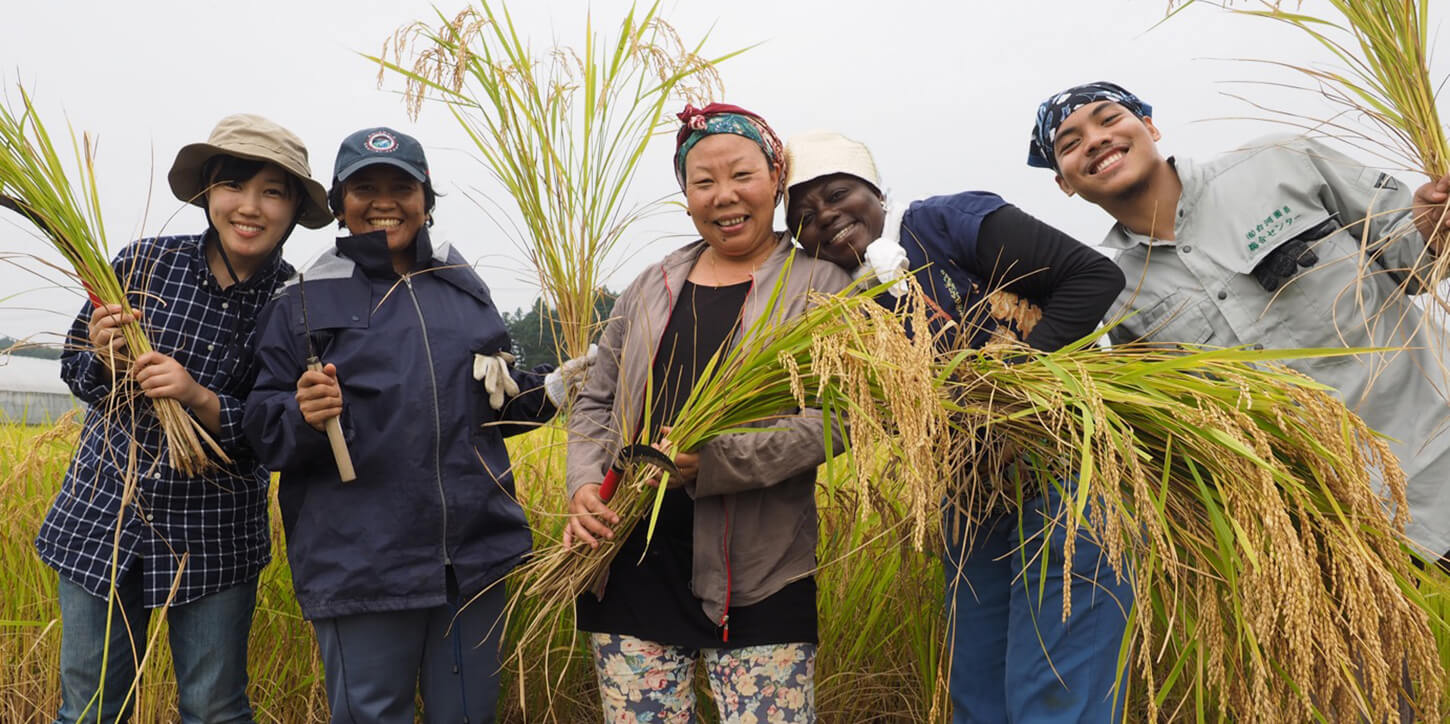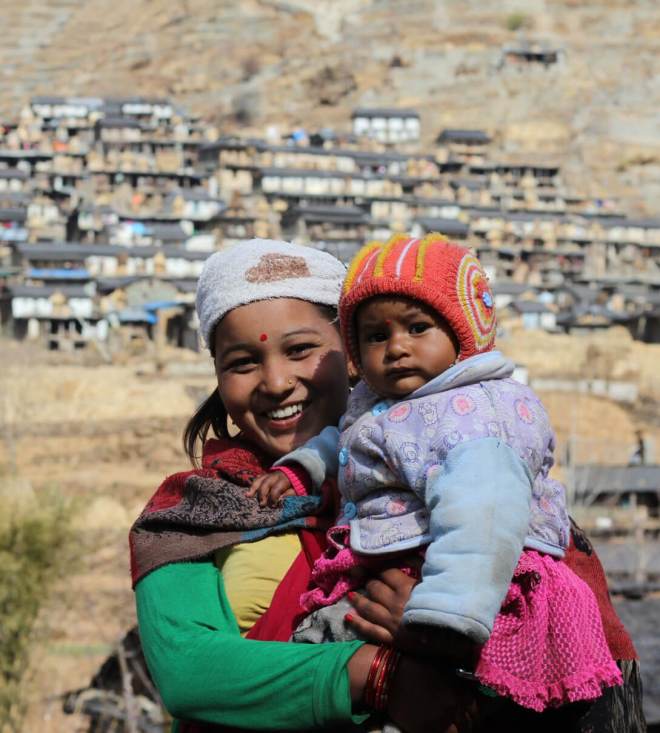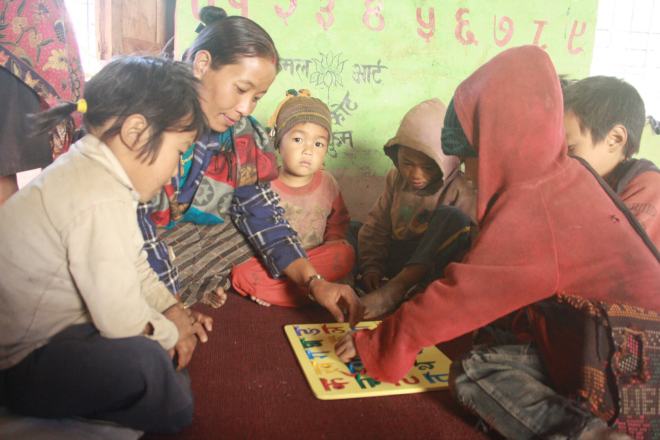
By Christie R. House
May 25, 2019 | ATLANTA
Part three of a three-part series
Katherine Parker, a missionary serving in Nepal, describes her mission work in Nepal as “Sangsangai,” meaning togetherness or hand in hand together. She spoke as one of three missionaries serving on a panel for a workshop offered at the April 2019 Bicentennial Conference, sponsored by Global Ministries and Candler School of Theology. The presenters focused on the topic of “New Mission Work in Contemporary Methodism,” with the Rev. Andrew Lee describing his work in Cambodia and Kristi Painter, a Global Mission Fellow, her life engaged in community with the Arch Street United Methodist Church in Philadelphia.
Katherine Parker has served as a missionary in Nepal since 2013. Her missionary journey began in 2000, when she served with the Asian Rural Institute in Japan and in Iowa as a mission intern, a forerunner of Global Mission Fellows. In 2007, Parker returned to missionary service to serve with the CHAD program in Cambodia. In this bicentennial workshop, she was a connecting point for all three missionaries.
Today, Parker works with the United Mission to Nepal (UMN), an ecumenical organization founded 65 years ago by eight Christian organizations, one of which was the Methodist Church. UMN started ministry just as Nepal began to engage with the world after 350 years of isolation. Nepalese who had left the country to work in India or along its national borders as migrants encountered Christ. When they returned to Nepal, they brought this new faith with them.
Parker believes UMN, today an ecumenical Christian organization with 35 mission partners in church denominations from Finland to Hong Kong, serves as a positive model for participation in the Missio Dei, the mission of God. UMN provides an opportunity to be present with members of the local Nepalese church. Its members engage in respectful, mutual walking alongside congregations – as accompaniers rather than as leaders of the church.

Fullness of life
Three major objectives of the UMN are to pursue peace and justice for all, address the root causes of poverty and make Christ known by word and life. “Being motivated and dependent on God,” Parker said, “we also hold these values to be foundational to our work: Love and service, equity and social justice, integrity, innovation and creativity, special concern for poor and marginalized people and care for the environment. This call is how we live into our vision of fullness of life for all in a transformed Nepali society,” a reflection of John 10:10.
She explained that poverty is not just a matter of economic inequity. Poverty is rooted in cultural and social beliefs designed to keep people in their place, locked out of Jesus’ promise. UMN seeks to help people identify barriers to change and determine what must be overcome and eliminated. “The root causes of poverty include deep social patterns.” Parker said. “These are lies that, when believed by those in poverty, lead to despair, and when believed by those in power, lead to oppression.”
“In Romans 8, we learn that none of these lies can separate us from the love of God in Christ Jesus, and that we can move beyond these lies of despair and oppression to hope and freedom, and thus a life of poverty is transformed into fullness of life.”
This philosophy forms the basis of the UMN theory of how change takes place in community as well as the role of global Christians accompanying Nepalis moving toward this vision of fullness of life. Rather than spending time on the various operations she’s involved in, Parker decided instead to share a story about what one community group accomplished.
Protagonists for change

PHOTO: COURTESY UNITED MISSION TO NEPAL
To get to Shyala, in the Rukum District, where she’s been working with the UMN team for four years, Parker sometimes takes a small plane, jeep, and then another day’s walk to reach the villages up the mountain, depending on road conditions. The women’s group they partner with in Shyala is called “Jhyoti,” meaning “light.” Together they work on parenting skills, gender equity in child rearing, as well as literacy, kitchen gardening and peacemaking. At an annual social audit meeting, women from Jhyoti shared this story.
A woman widowed several years ago gave birth to a child whose father turned out to be married to another woman. Citizenship traditionally comes through the father, so if paternity is denied, a child is vulnerable. Once the father was identified, Jhyoti intervened on behalf of the child, his mother and father, and the wife of the father. They arranged for the father’s name to be included on the birth certificate and for child support for the baby’s mother. This made the wife of the baby’s father angry. So, Jhyoti facilitated an agreement to have all the man’s land transferred to his wife’s name if he strayed again. Parker said the ward chairperson at the social audit declared, “These women speak like men.” When women have safe spaces in which to meet together, they become protagonists of change in their society.
The combined work and responsibilities of the missionaries in this three-part series touch on a wide range of mission areas, including evangelism, discipleship, humanitarian response, development, peacemaking, health care, organizing, providing for basic needs and building up a community’s capacity to meet its own needs. A common theme running through the missionaries’ presentations was that the work of missionaries today centers less on an agenda of numbers and church success and more on people and the impact of God’s presence in their lives.
Christie R. House is the senior writer/editor for Global Ministries, Mission Engagement.

